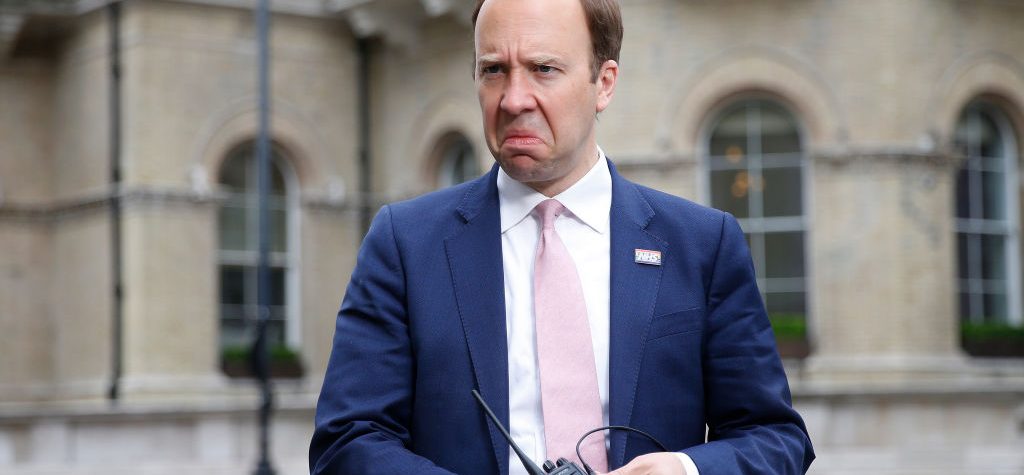Since the term was coined in 2004 as a combination of “iPod” and “broadcast”, podcasts have exploded in popularity. In the UK, 41 per cent of the population now listen to podcasts monthly. In 2021, there were over 19.1 million podcast listeners in the UK, expected to rise to over 28 million by 2026.
From history to science, reality television to literature, and cookery to football, there’s a podcast for almost anything. The Mace has enjoyed such oddities as Our Struggle, a podcast dedicated to the literary phenomenon of Norwegian author Karl Ove Knausgaard’s memoir series; The Troubles which produces episodes such as Pat Finucane: A Murder With Collusion At Its Heart; and Skylines, the City Metric Podcast addressing the intensification and complexities of contemporary urban life.
And then, there is politics. Every leading newspaper and magazine has at least one weekly podcast and they’re fast becoming daily, allowing news consumers to wallow within their chosen echo chamber. Especially prominent are The Spectator’s Coffee House Shots and The Guardian’s Today in Focus.
A helpful article published in March listed the “Best 70 Political Podcasts” to help narrow the field down, rated by factors like “freshness” and “number of social media followers”. Indeed, this magazine published Iain Dale’s Top 50 Political Podcasts in April 2021 (although Dale professed that he, the presenter of six political podcasts, couldn’t quite find time to listen to all of them regularly).
But politicians, too, are taking to the airwaves to launch or “guest on” a pod. So, what are the most must dos and most flagrant don’ts?
First, if you’re the leader of a political party and you want to start a podcast… Don’t. Hillary Clinton did as part of her election campaign in 2016. The New York Times wrote that Clinton’s attempt “became instantly more compelling after her loss; the two episodes she recorded in September reflecting on the election are riveting, even for those with Election fatigue”. Similarly, Ed Miliband did not launch the successful Reasons to be Cheerful podcast until 2017, two years after his general election defeat.
Second: be prepared for personal attacks. A top-rated comment describes Clinton’s show as “self deranged” adding that its content “explains why she’s one of the most unpopular people in the world”. Similarly, The Moggcast hosted by Jacob Rees-Mogg has reviews that range from “top notch” to “drivel” and even “insufferable, I’d take waterboarding instead thank you”.
Perhaps he’d have had less criticism if he’d softened his show with the addition of a co-host, which takes us neatly onto the third, another do: why not team up?
There’s something infinitely less grating about a shared venture. Ed Miliband’s podcast is saved due to his partner Geoff Lloyd, who’s a broadcaster and comedian. A new partnership between Alistair Campbell (New Labour’s infamous spin doctor) and Rory Stewart (former Conservative MP) makes for a mildly less self-indulgent feel to The Rest is Politics – even if they do tend to agree with each other on pretty much everything.
Fourthly, err on the side of restraint when it comes to personal details. Former health secretary Matt Hancock vaulted onto the auditory scene early this year. His approach was typically Hancockian in that he hadn’t quite grasped the basic rules of the podcast world. Do speak to an echo chamber. Don’t overexpose yourself unnecessarily.
When Hancock appeared on Steven Bartlett’s The Diary of a CEO, he revealed personal titbits about his affair, his time at university, failures of policy during the pandemic and more. He was far too keen to emphasise that he has never had “casual sex” in his life. The truth is that no one needed to hear this, and most of Bartlett’s audience of millennial urbanites wouldn’t have cared.
American historian Nicole Hemmer told Vulture magazine that political podcasting is “less about telling a story than creating a persona and a brand”. That said, politicians shouldn’t overdo it. A light brand is a positive, but oversharing, overposting and overposing looks painfully vain. Just think of Liz Truss and Rishi Sunak’s heavily curated Instagram feeds.
Most important of all: consider the maxim that not everyone needs to, or indeed should, start a podcast. Nick Clegg’s launched Anger Management with Nick Clegg in 2018, an interview show ostensibly seeking to answer the question: “Are we living in an age of rage? And if rage is the opposite of reason, how do we get reason back on top?”
Reviewers deemed Clegg a dire interviewer (the Financial Times described him as “lacking fluency”). The format of the show was seen as uninteresting. After a mere eight episodes, Anger Management was dropped, quietly, in 2018. Christopher Hitchens comes to mind: everyone has a book in them and that, in most cases, is where it should stay.


